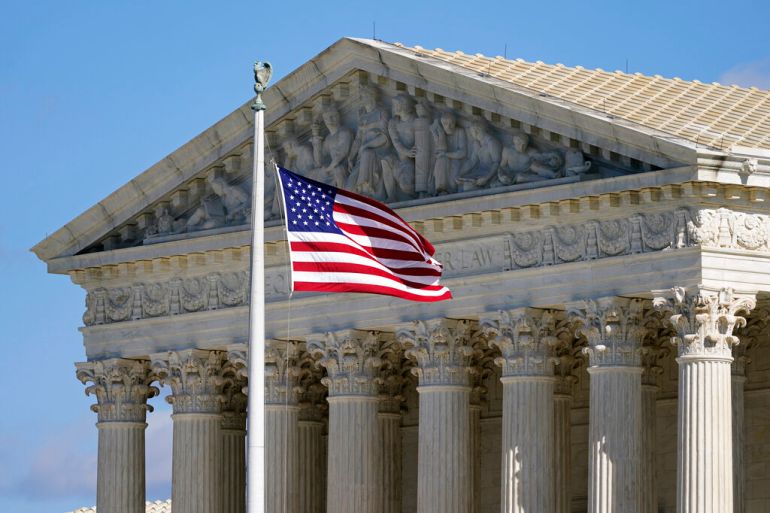US high court to hear challenge to race-based college admissions
Challenges brought by a conservative legal activist could bring an end to affirmative action programmes at Harvard, UNC.

The United States Supreme Court has agreed to take up a pair of lawsuits that could bring an end to race-based admission policies widely used by American universities to increase the number of Black and Hispanic students on campuses.
The justices on Monday agreed to hear lawsuits by a group called Students for Fair Admissions, founded by conservative legal activist Edward Blum, seeking to prevent Harvard University and the University of North Carolina from considering race in undergraduate admissions.
Keep reading
list of 4 items‘We are the power’: Canada’s Indigenous land defenders fight on
Nuclear deal unlikely unless Iran releases US prisoners: Report
Taliban, Western officials meet in Oslo to discuss Afghanistan
Lower court rulings have upheld the programmes used by the two prestigious universities to foster a diverse student population. The cases give the court, with its 6-3 conservative majority, a chance to end such policies.
The lawsuits accuse the universities of discriminating against applicants based on race in violation of federal law or the US Constitution. Blum’s group alleged in the Harvard case that the school discriminated against Asian American applicants. In the UNC case, Blum’s group alleged that the university’s policy discriminated against white and Asian American applicants.
The universities have said they use race as only one factor in a host of individualised evaluations for admission without quotas, and that curbing the consideration of race would result in a significant drop in the number of Black, Hispanic, and other underrepresented students on campus.
US conservatives long have opposed affirmative action programmes used in such areas as hiring and student admissions to address past discrimination against minorities.
Blum’s group sued Harvard in 2014, accusing it of violating Title VI of the Civil Rights Act of 1964, which bars discrimination based on race, colour or national origin under any program or activity receiving federal financial assistance. Harvard is a private university founded in 1636 and located in Cambridge, Massachusetts. It receives federal funds.
The group also sued UNC in 2014, accusing the university of impermissibly using race as the main factor in admissions in violation of the Constitution’s 14th Amendment guaranteeing equal protection under the law. UNC, located in Chapel Hill and chartered in 1789, is North Carolina’s flagship public university.
The use of affirmative action has withstood Supreme Court scrutiny for decades, including in a 2016 case brought by a white student backed by Blum, who challenged a University of Texas policy. In that case, the justices narrowed its application.
Now, with a new conservative 6-3 majority of justices on the nine-member court, an eventual ruling on the new challenges by Blum could dilute or potentially eliminate college affirmative action programmes.
The case is expected to be heard during the court’s 2022 term, which begins in October and ends in June 2023.
President Joe Biden’s administration has backed Harvard, urging the justices in a court filing not to hear that case. The court’s precedents “correctly recognize” that the educational benefits that result from diversity justify race-conscious measures.
Biden’s predecessor, former President Donald Trump, a Republican, had backed Blum’s lawsuit against Harvard.
Under conservative Chief Justice John Roberts, the court has been hostile to other efforts to remedy past racial discrimination. In 2013, it struck down a key part of the Voting Rights Act, enacted in 1965 to ensure that minorities could vote.